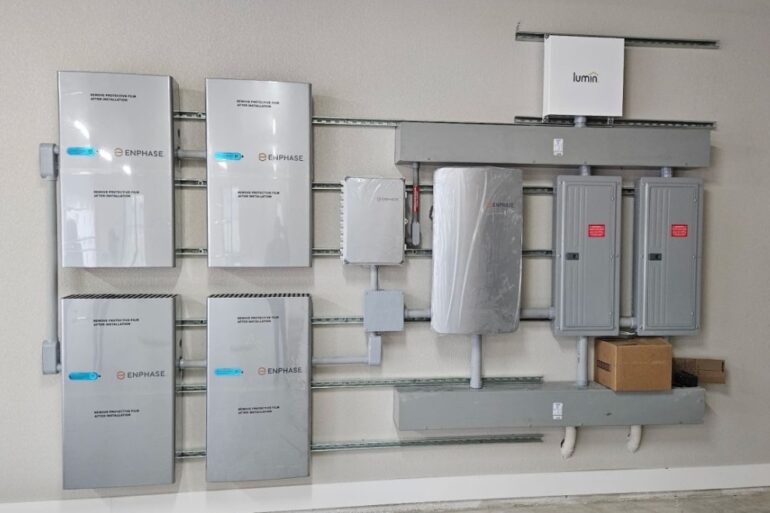As more homeowners pair solar panels with energy storage, one of the most common questions we hear is: How long do solar batteries last? We’re continuing our series on the lifespan of critical solar system equipment. Last time we looked at how long solar panels last, and today we turn our attention toward the all-important battery.
Understanding battery lifespan is essential for predicting long-term performance, planning your investment, and ensuring your home stays powered during outages. Modern solar batteries are more durable and dependable than ever — but like all batteries, their performance changes over time.
Average Lifespan: 10–15 Years
Most residential solar batteries today last between 10 and 15 years. This means that if you install a battery at the same time as your solar panels, you’ll likely need to replace the battery once during your system’s lifetime. Many manufacturers also offer warranties of 10 years, which aligns with typical performance expectations.
Unlike solar panels that simply degrade slowly, solar batteries operate through charge and discharge cycles, similar to how your phone battery works. Each cycle produces a small amount of wear, and over time the battery’s ability to hold energy gradually decreases.
Lithium-Ion Batteries Lead the Market
Today’s most popular solar batteries—such as the Tesla Powerwall, Enphase IQ, and LG Chem—use lithium-ion technology. Lithium-ion batteries have several advantages:
- Longer lifespans compared to lead-acid batteries
- Higher efficiency, often around 90% or more
- Deeper discharge capability, meaning you can use more of the stored energy
- Compact design and low maintenance
Get Your Energy Independence
Lead-acid batteries, while cheaper upfront, typically last only 3 to 5 years, making lithium-ion a more cost-effective long-term choice.
What Affects a Solar Battery’s Lifespan?
Several factors influence how long a solar battery will last:
- Depth of Discharge (DoD): Batteries last longer when they are not fully discharged every cycle.
- Temperature: Extreme heat or cold can speed up battery degradation.
- Usage Patterns: Heavy daily cycling (charging and discharging) shortens lifespan.
- Quality of Components: Premium batteries with smart thermal management systems tend to last longer.
- Installation Location: Indoor or temperature-controlled environments offer better longevity.
A properly designed system with good ventilation and smart energy management will dramatically improve battery health.
When Should You Replace a Solar Battery?
A solar battery doesn’t typically fail suddenly. Instead, it loses usable capacity over time. Homeowners usually choose to replace their battery when:
- It stores significantly less energy
- Backup protection becomes unreliable
- The warranty period ends and performance drops noticeably
A high-quality solar battery offers a decade or more of dependable energy storage, helping you maximize your solar investment and enjoy greater independence from the grid. With proper use and a professionally designed system, your solar battery can deliver reliable backup power and long-term savings for many years.

